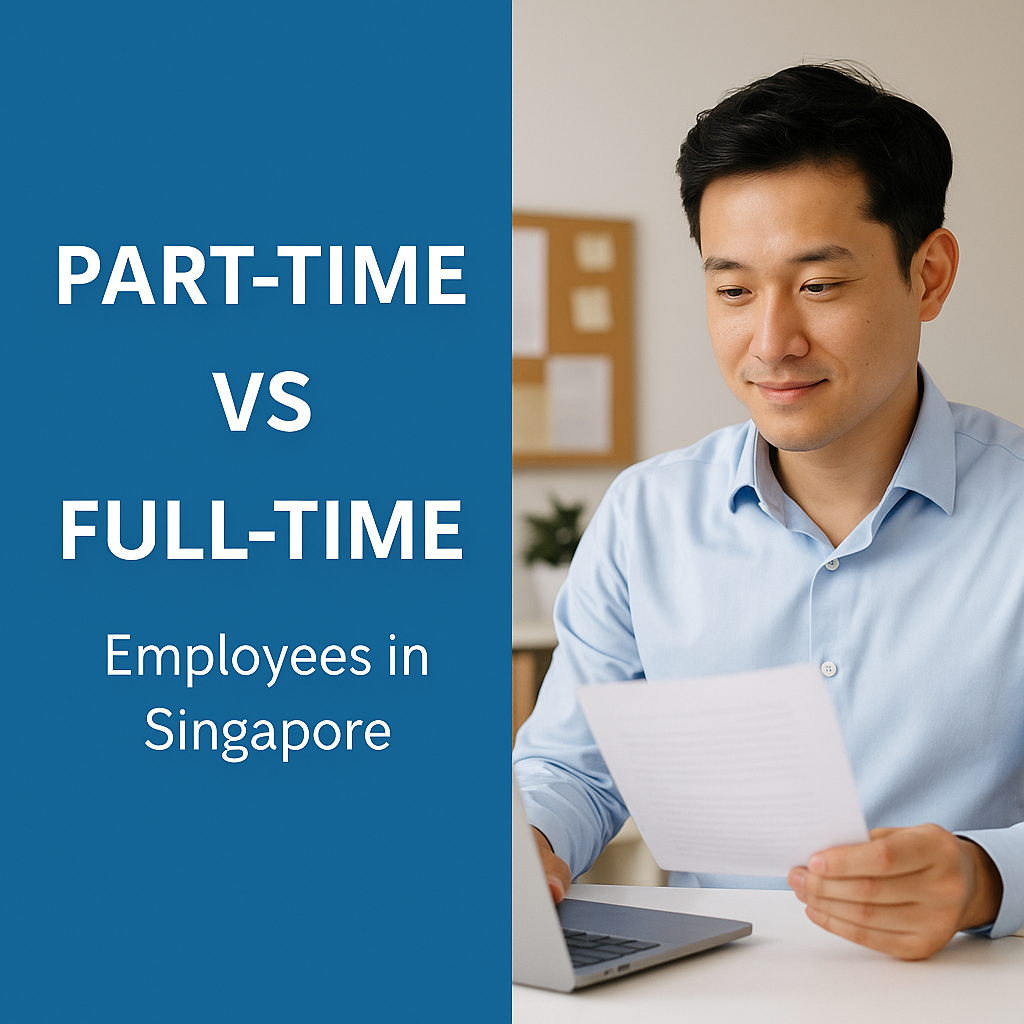
Running an F&B business in Singapore comes with a unique set of challenges—from high rental costs to fluctuating customer demand. One of the most critical decisions you’ll make is how to build your workforce. Should you hire full-time staff for stability, or go with part-time workers for flexibility?
In this guide, we’ll break down the key differences between part-time vs full-time employees in Singapore, so you can decide which hiring model makes the most sense for your operations.
Under Singapore’s Ministry of Manpower (MOM):
Many F&B businesses choose full-time staff for consistency. Here’s why:
Full-timers often stay longer, reducing turnover and training costs.
They provide dependable manpower for opening and closing shifts, weekends, and holidays.
Permanent staff help maintain a consistent brand experience for your customers.
Best for:
Restaurants with predictable daily volume, high-end dining, or multi-outlet franchises.
If your business sees spikes in activity—weekends, school holidays, or festive seasons—part-time staff may be a better fit.
You only pay for hours worked. No full-time commitment or benefits overhead.
Scale up or down based on footfall or special events.
Tap into students, freelancers, or semi-retirees who prefer flexible gigs.
Best for:
Cafés, bars, events-based catering, or hawker stalls with peak-hour demand.
Rather than choosing one over the other, many savvy business owners are combining both staffing models:
This approach keeps your labour force lean, agile, and cost-effective.
Whether you’re leaning toward part-time or full-time, your recruitment process needs to be fast, reliable, and stress-free.
Here’s where Anytime Work makes a difference:
The choice between part-time vs full-time employees in Singapore depends on your business model, cash flow, and staffing needs. There’s no one-size-fits-all solution—but there is a smarter way to hire.
Visit anytimeanywork.com and find the right staff for your business—fast, flexible, and fuss-free.
Jonathan Herbsman is the CEO and co-founder of Anytime AnyWork, a flexible staffing platform connecting businesses with reliable part-time workers in Singapore. With a deep understanding of the gig economy and a passion for empowering people through accessible work opportunities, Jonathan leads the company’s mission to revolutionize how businesses hire and how individuals find work. Driven by innovation and data, he combines strategic vision with hands-on leadership to build scalable hiring solutions tailored to the needs of modern workplaces—especially in industries like F&B, retail, logistics, and events. Under his guidance, Anytime AnyWork has grown into a trusted platform for employers seeking quality staff and job seekers looking for flexible, on-demand roles. Jonathan regularly shares insights on workforce trends, part-time employment, and digital hiring strategies to help both employers and workers thrive in today’s fast-moving job market.